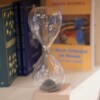
Being Feminist, Being Christian: Essays from Academia
In the last quarter-century, a number of books and essay collections have been published which address the role of women in higher education, as well as the difficulties many females face as faculty members in male-dominated institutions. Books such as Lifting a Ton of Feathers: A Woman’s Guide to Surviving in the Academic World (1993), Ms. Mentor’s Impeccable Guide for Women in Academia (1997), and The Family Track (1998) have spoken well to the place of women in academia, exploring the myriad experiences of faculty women through a number of theoretical, historical, and anecdotal approaches. Yet explicitly Christian voices have been largely absent from conversations about women in higher education, and stories of women’s work experiences in Christian institutions remain, for the most part, unheard.
Allyson Julé and Bettina Tate Pedersen have moved to remedy this absence through the publication of their thoughtful edition, Being Feminist, Being Christian: Essays From Academia. Although the collection does not address the struggles women faculty face in Christian higher education directly, Being Feminist, Being Christian does lend voice to the very fine Christian academics who are exploring the place of women in history, in religion, in literature, and in society. Premised on the conviction that one can be a Christian and a feminist, this collection of eight essays by noted Christian academics explores several questions significant to Christian feminists: namely, in what ways are Christianity and feminism compatible? How does one live as a Christian and a feminist? What exactly does Christian feminist scholarship look like? How do academics writing about Christian feminism approach their craft?
The contributors to Being Feminist, Being Christian show convincingly that there is no monolithic Christian feminist identity, nor is there a singular approach to Christian feminist scholarship. This is a significant strength in the collection, as the text argues that dialogue about Christian feminism is important, even among Christian feminists. Despite the book’s decidedly Wesleyan bent, readers will find a number of theological perspectives embedded within the essays, and may even discover places where the writers themselves disagree about Christian, or about feminist, ideologies. Nonetheless, readers will find that each essay offers a compelling argument for the ways the writers’ church traditions and academic disciplines find compatibility between Christianity and feminism.
Although every writer in Being Feminist, Being Christian provides rich exploration of the intersections between feminism and Christianity, some essays are not for the faint of heart, weighted densely as they are with language specific to the writers’ academic disciplines. For example, Elizabeth Powell, a theological graduate student at Regent College in Vancouver, B.C., writes an interesting comparison of two important feminist thinkers in her essay “In Search of Bodily Perspective: A Study of Simone de Beauvoir and Luce Irigaray.” Powell’s essay is impressive in its synthesis and analysis, as she presents a rereading of the thinkers’ work in light of Christianity. And while fellow academics will probably have little difficulty parsing Powell’s dense prose, the overuse of discipline-specific vocabulary may alienate some readers. In the least, Powell’s thoughtful essay is a good reminder that academic language itself can become cliché, and that a good many academics might benefit from a more direct and clear rhetorical technique.
Other contributors are far more accessible in their approaches to Christian feminism, and provide strong anchors to the essay collection. The text opens with Pedersen’s “Christian Feminist or Feminist Christian,” an autobiographic exploration of the compatibility issue central to the collection; by tracing her own development as a feminist Christian and as a Christian feminist, Pedersen suggests Christianity may provide a “redemptive corrective” to feminism, and the ways feminism may provide the same for Christianity. The book’s last essay, Christopher Noble’s “Biblical Literalism and Gender Stability,” offers a fascinating Christian rereading of Gender Performance Theory, and posits an interesting negotiation between two predominating threads of feminist thought: essentialism and gender performance. Noble’s thoughtful and immanently readable essay is a satisfying end to the Being Feminist, Being Christian, as Noble retraces many of the theories explored by other writers in the collection.
Several essays in Being Feminist, Being Christian are persuasive in their application of historical methods in exploring the intersections of Christianity and feminism. In “Speaking Out: Feminist Theology and Women’s Proclamation in the Wesleyan Tradition,” Lisa Bernal Corley and Carol Blessing trace the ways women have “found a voice” within church cultures that often silenced them; Corley and Blessing show that women such as Susanna Wesley and Mary Bosanquet Fletcher worked through and around traditional power structures as a means of expanding what they believed were women’s roles within the church. Holly Faith Nelson, in “Nascent Christian Feminism in Medieval and Early-Modern Britain,” describes the ways women like Margery Kempe and Julian of Norwich, speaking and writing from the margins, “fashioned themselves mirrors and agents of the divine” (177). Still, despite these interesting historical analyses, it is the more autobiographic essays, like Pedersen’s and like Linda Beail’s “Blessed Mother or Material Mom,” which no doubt will resonate most with readers, as Pedersen and Beail (among others in the collection) address the myriad ways Christian feminism is integrated into their own life experiences in the academy, in their churches, and in their personal lives in the clearest way.
Thus, while Being Feminist, Being Christian provides strong examples of the excellent scholarship produced about Christian feminism, the theoretical explorations presented in the text may need to be balanced with the more personal stories of how Christianity and feminism guide and shape those who affirm the compatibility of both ideologies. Indeed, while Being Feminist, Being Christian opens the dialogue between academics at Christian institutions, other thinkers should sustain and expand this conversation to consider more concretely how Christian feminism operates in Christian higher education. In doing so, Christian scholars can also give voice to the experiences of women in higher education already inprint, enriching (and no doubt complicating) the conversations that have been taking place for several decades by scholars outside Christian academia. Being Feminist, Being Christian provides an excellent entry to such conversations.























